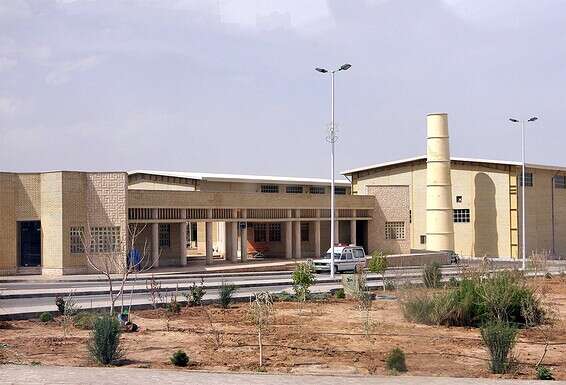The fortification of Washington and Tehran in their positions has led to a dead end • The problem is that Iran is the one benefiting from the crisis and time is running out • Interpretation
Iran's Supreme Leader, Ali Khamenei // Photo: EPI
Iran announced this week that because of the stringent sanctions imposed on it by Donald Trump, it will be forced to close the old nuclear reactor at Bushhar, which is used to generate electricity.
The official explanation said that the restrictions on the banking system make it difficult to purchase equipment and spare parts from Russian suppliers.
Under normal circumstances, such an announcement, ostensibly the first public confession by Tehran of the effectiveness of the sanctions, should have elicited joy from Washington.
After all, if the Iranians are already acknowledging the difficulties, it will not be long before they return to the negotiating table to sign a new and improved nuclear deal that will allay Western fears.
But the truth is the opposite.
The last three years have been the most difficult the Iranian economy has known since the war with Iraq in the 1980s, but contrary to most expectations in the West, the Iranian economy has not completely collapsed under sanctions and a white flag has not been raised in Tehran.
It turns out that the Iranians have found ways to circumvent the sanctions and since the beginning of the year there has even been an impressive increase in Iranian oil exports thanks to direct and indirect crude oil purchases from China, which also signed a long-term strategic cooperation agreement with Tehran.
The result: Instead of rushing and warmly embracing President Biden's proposal to return to the nuclear deal from which Trump withdrew, Khamenei is now signaling that nothing is burning and the haste is from the devil.
"Sometimes the risks outweigh the benefits," he said, "and when we signed the nuclear deal we acted in a hurry. Now we have patience. If the US accepts our terms, it's good, and if not - we can hold on."
The issue is that even President Biden, who is under opposing pressure from senior government officials over how to treat Iranians and is preoccupied with bigger internal problems, does not convey urgency or willingness to comply with Tehran's demand to remove sanctions first.
The fortification of both sides in their positions led to a dead end.
As of this moment there is not even agreement on a first dialogue meeting.
The main problem is that time is playing mostly in Iran's favor and alienates the chances of a solution.
First, because Iran continues, in the meantime, to grossly violate the agreement.
Uranium enrichment continues to a degree of 20% and the experiments in the newer and faster sarcasm have not stopped.
Second, because in less than two months, the agreement signed between Iran and the Atomic Energy Agency will expire, according to which Iran will refrain from imposing restrictions on the freedom of action and movement of the agency's inspectors.
Third, because in three months' time there will be presidential elections in Tehran and the expected strengthening of the conservative wing, which opposed the nuclear agreement in the first place, could thwart any attempt at compromise.
Fourth, because the prolongation of the stalemate and the lack of a new agreement bring Iran closer to the expiration date of the original agreement from 2015, when it can enrich uranium as it pleases and produce a bomb unhindered.
And fifth, because each passing day allows the Iranians to advance and improve their ballistic missile production and, at the same time, increase their regional subversion from supplying precision weapons to Hezbollah to aiding the Houthi rebels in Yemen.
In this context, mention should also be made of the publications on the expansion of the arena of conflict between Iran and Israel into the maritime space and the damage attributed to Iran in two Israeli-owned ships.
Recent satellite imagery has revealed that the Revolutionary Guards are engaged in building three new types of warships, perhaps to make up for their conspicuous inferiority on the naval battlefield.
Among President Biden's advisers are those who believe that instead of arguing over who will take the first step, and to get out of the deadlock, Washington should offer Iran only a halt to the increased uranium enrichment in the meantime in exchange for some sanctions relief.
If the Iranians refuse, the nuclear hourglass will run out.

